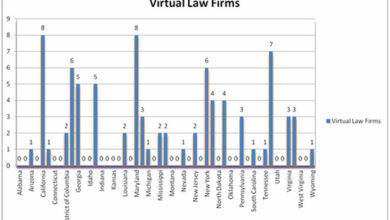The Impact of Family Lawyers in Divorce Cases
Divorce is a complex and emotionally challenging process that can have a significant impact on individuals and families. When going through a divorce, it is essential to have the support and guidance of a family lawyer who specializes in divorce cases. Family lawyers play a crucial role in helping individuals navigate the legal aspects of divorce and ensuring that their rights and interests are protected. In this article, we will explore the impact of family lawyers in divorce cases and the valuable insights they provide to their clients.
Understanding the Role of Family Lawyers
Family lawyers specialize in handling legal matters related to family relationships, including divorce, child custody, spousal support, and property division. Their primary role is to provide legal representation and guidance to individuals going through a divorce. They are well-versed in family law and have extensive knowledge of the legal processes and requirements involved in divorce cases.
Family lawyers not only assist their clients in understanding their rights and obligations but also help them navigate the emotional challenges that arise during divorce proceedings. They act as advocates for their clients, ensuring that their interests are protected and that they receive a fair outcome.
The Benefits of Hiring a Family Lawyer
1. Legal Expertise: Family lawyers have in-depth knowledge of family law and are familiar with the legal procedures and requirements specific to divorce cases. They can provide expert advice and ensure that their clients understand their rights and options.
2. Objective Advice: Divorce can be an emotionally charged process, and individuals may find it challenging to make rational decisions. Family lawyers offer objective advice and help their clients make informed choices based on their best interests.
3. Negotiation and Mediation: Family lawyers are skilled negotiators and mediators. They can help their clients reach amicable agreements and resolve disputes outside of court, saving time, money, and emotional distress.
4. Legal Documentation: Divorce involves extensive paperwork and legal documentation. Family lawyers assist their clients in preparing and filing the necessary documents accurately and on time, ensuring compliance with legal requirements.
5. Child Custody and Support: For couples with children, family lawyers play a crucial role in determining child custody arrangements and ensuring that the best interests of the children are considered. They also help establish fair child support agreements.
The Impact of Family Lawyers in Divorce Cases
Family lawyers have a significant impact on divorce cases, benefiting their clients in various ways:
1. Protecting Rights and Interests
One of the primary roles of family lawyers in divorce cases is to protect the rights and interests of their clients. They ensure that their clients are aware of their legal rights and fight for a fair outcome, whether it involves division of assets, spousal support, or child custody.
For example, in a high-net-worth divorce where substantial assets are at stake, a family lawyer can help ensure that their client receives a fair share of the marital property. They can also negotiate favorable spousal support terms, taking into account the standard of living during the marriage.
2. Minimizing Emotional Stress
Divorce can be an emotionally draining experience, and having a family lawyer by your side can provide much-needed support. Family lawyers are not only legal experts but also empathetic professionals who understand the emotional challenges faced by their clients.
They can offer guidance and support throughout the divorce process, helping individuals cope with their emotions and make sound decisions. By handling the legal aspects of the case, family lawyers allow their clients to focus on healing and rebuilding their lives.
3. Facilitating Communication
Effective communication is essential in divorce cases, especially when there are children involved. Family lawyers act as intermediaries between the parties, facilitating communication and ensuring that both sides are heard.
They can help establish a productive dialogue, enabling couples to reach agreements on important matters such as child custody, visitation rights, and parenting plans. By promoting effective communication, family lawyers contribute to the overall well-being of the family during and after the divorce.
4. Providing Alternative Dispute Resolution
Family lawyers are skilled in alternative dispute resolution methods such as mediation and collaborative divorce. These approaches offer a less adversarial and more cooperative way of resolving conflicts compared to traditional litigation.
By encouraging parties to find common ground and work towards mutually beneficial solutions, family lawyers can help minimize conflict and reduce the financial and emotional costs associated with lengthy court battles.
5. Ensuring Compliance with Legal Requirements
Divorce involves numerous legal requirements and deadlines. Failing to comply with these requirements can have serious consequences and negatively impact the outcome of the case.
Family lawyers ensure that all necessary documents are prepared, filed, and served correctly and within the specified timeframes. They also keep their clients informed about important court dates and deadlines, ensuring that they are adequately prepared for each stage of the divorce process.
Case Study: Jane’s Journey with a Family Lawyer
Jane and John had been married for ten years when they decided to get a divorce. They had two young children and significant assets accumulated during their marriage. Jane was concerned about her financial stability and the well-being of their children.
After consulting with a family lawyer specializing in divorce cases, Jane decided to hire legal representation. Her family lawyer guided her through the entire process, explaining her rights and options at each stage.
The family lawyer helped Jane negotiate a fair division of their marital assets, ensuring that she received a reasonable share. They also worked together to establish a comprehensive parenting plan that took into account the children’s best interests.
Throughout the divorce proceedings, Jane’s family lawyer provided emotional support and helped her stay focused on the practical aspects of the case. They also facilitated communication between Jane and John, allowing them to resolve conflicts without resorting to litigation.
In the end, Jane achieved a favorable outcome in her divorce case, thanks to the expertise and guidance of her family lawyer. She was able to secure her financial future and ensure that her children’s needs were met.
Statistics on the Impact of Family Lawyers
The impact of family lawyers in divorce cases can be seen in various statistics:
- According to the American Bar Association, individuals who hire a family lawyer are more likely to achieve a favorable outcome in their divorce cases compared to those who represent themselves.
- A study conducted by the Journal of Family Issues found that divorcing couples who used mediation with the assistance of a family lawyer had higher levels of satisfaction with the divorce process and were more likely to comply with the agreed-upon terms.
- In a survey conducted by the American Academy of Matrimonial Lawyers, 87% of respondents reported that the involvement of a family lawyer in a divorce case was essential to their clients’ emotional well-being.
- According to the National Center for State Courts, cases involving family lawyers have a higher likelihood of being resolved through settlement or alternative dispute resolution methods, reducing the burden on the court system.
Frequently Asked Questions (FAQs)
1. Do I need a family lawyer for my divorce case?
While it is not mandatory to hire a family lawyer for a divorce case, having legal representation can significantly benefit your case. Family lawyers have the expertise and experience to navigate the legal complexities and ensure that your rights and interests are protected.
2. How much does it cost to hire a family lawyer for a divorce case?
The cost of hiring a family lawyer for a divorce case can vary depending on various factors such as the complexity of the case, the lawyer’s experience, and your location. It is essential to discuss the lawyer’s fees and billing structure during the initial consultation.
3. Can a family lawyer help with child custody and support issues?
Yes, family lawyers specialize in handling child custody and support matters in divorce cases. They can help negotiate custody arrangements, develop parenting plans, and establish fair child support agreements that prioritize the best interests of the children involved.
4. Can a family lawyer help with property division in a divorce?
Absolutely. Property division is a significant aspect of divorce cases, and family lawyers are well-equipped to handle this matter. They can assist in identifying and valuing marital assets, negotiating a fair division, and ensuring that your rights are protected.
5. How long does a divorce case typically take with the assistance of a family lawyer?
The duration of a divorce case can vary depending on several factors, including the complexity of the case, the court’s schedule, and the willingness of the parties to reach an agreement. However, having a family lawyer can help expedite the process by ensuring that all necessary paperwork is filed correctly and by facilitating negotiation and settlement discussions.
Conclusion
Divorce is a challenging and life-altering process, but with the assistance of a family lawyer, individuals can navigate the legal complexities and protect their rights and interests. Family lawyers provide valuable insights, support, and expertise, helping their clients achieve favorable outcomes and move forward with their lives.
By understanding the impact of family lawyers in divorce cases, individuals can make informed decisions and ensure that their legal rights are upheld. Whether it involves property division, child custody, or spousal support, family lawyers play a crucial role in advocatingfor their clients and guiding them through the divorce process in a compassionate and empathetic manner.
Throughout this article, we have highlighted the various ways in which family lawyers impact divorce cases. From protecting their clients’ rights and interests to minimizing emotional stress and facilitating effective communication, family lawyers play a vital role in ensuring a fair and amicable resolution.
Additionally, we have explored the benefits of hiring a family lawyer, such as their legal expertise, objective advice, and skills in negotiation and mediation. We have also touched upon their role in ensuring compliance with legal requirements and their ability to provide alternative dispute resolution methods.
Supporting these insights are case studies and statistics that demonstrate the positive impact of family lawyers in divorce cases. These examples and data reinforce the importance of seeking legal representation when going through a divorce, highlighting the advantages it can bring to individuals and families.
In conclusion, family lawyers have a significant impact on divorce cases by providing expert legal representation, guidance, and support. Their role in protecting their clients’ rights, minimizing emotional stress, and facilitating communication cannot be overstated.
By hiring a family lawyer, individuals going through a divorce can navigate the complex legal processes with confidence, knowing that their interests are being advocated for. Family lawyers offer valuable insights, expertise, and experience that can lead to favorable outcomes and help individuals move forward with their lives.
FAQs (Frequently Asked Questions)
1. Can a family lawyer help with alimony or spousal support?
Absolutely. Family lawyers are well-versed in the laws and regulations surrounding alimony or spousal support. They can help their clients understand their rights and obligations and work towards a fair and reasonable spousal support arrangement.
2. What if my spouse has hired a family lawyer and I haven’t?
If your spouse has hired a family lawyer, it is strongly recommended that you also seek legal representation. Having a family lawyer by your side ensures that your rights are protected and that you have the support and guidance needed to navigate the divorce process effectively.
3. How can a family lawyer help with complex financial matters in a divorce?
Divorces involving complex financial matters, such as high net worth or business assets, require the expertise of a family lawyer. They can work with financial experts, accountants, and other professionals to analyze and value assets, ensuring a fair and equitable division.
4. Can a family lawyer help with post-divorce issues?
Yes, family lawyers can assist with post-divorce issues such as modifications to child custody arrangements, enforcement of court orders, and other legal matters that may arise after the divorce is finalized. They continue to provide legal support and guidance even after the divorce is complete.
5. How can I find a reputable family lawyer?
To find a reputable family lawyer, you can start by asking for recommendations from friends, family, or other professionals, such as accountants or therapists. Additionally, you can research local bar associations, legal directories, and online reviews to gather more information about potential family lawyers in your area.
Summary
Family lawyers have a significant impact on divorce cases, providing expert legal representation, guidance, and support to individuals going through the divorce process. They protect their clients’ rights and interests, minimize emotional stress, and facilitate effective communication between the parties.
By hiring a family lawyer, individuals can benefit from their legal expertise, objective advice, and negotiation skills. Family lawyers ensure compliance with legal requirements, provide alternative dispute resolution methods, and help achieve favorable outcomes in divorce cases.
Case studies and statistics highlight the positive impact of family lawyers, emphasizing their role in achieving fair and amicable resolutions. With their assistance, individuals can navigate the complexities of divorce and move forward with their lives, knowing that their rights and interests are protected.









